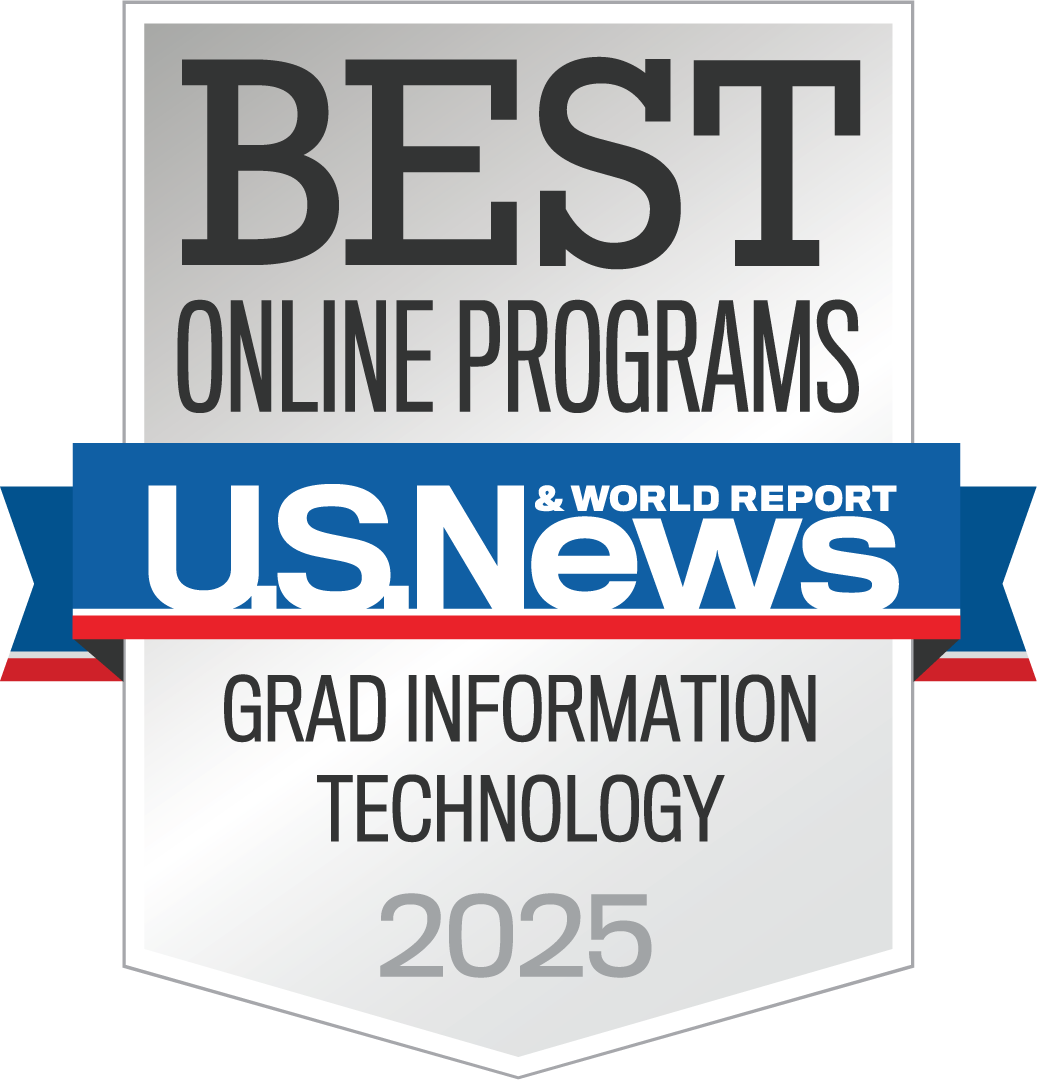Build the Databases that Drive Business Solutions
The MS in Computer Information Systems (MSCIS) concentration in Database Management & Business Intelligence provides students with the tools to utilize the vast amounts of information provided by large data groups. Along with extensive hands-on experience with SQL using Oracle and other leading DBMS and data mining tools, students gain skill and expertise in the design and implementation of operational databases—as well as the data warehousing, data mining, and related business intelligence technologies for managing the enterprise. Database management systems play key roles in the operations and management of every organization across all industries, and students who complete this concentration are able to integrate information technology with business problems and opportunities. Career tracks include database and knowledge modelers, designers, developers, and business intelligence analysts.
The MS in Computer Information Systems concentration in Database Management & Business Intelligence is also available on campus in Boston. Learn more.
Curriculum
A total of 32 units is required.
Students must complete the core courses and Database Management & Business Intelligence concentration requirements.
Prerequisites and Corequisites
Core Courses
Concentration Requirements
Master's Thesis Option
Dates & Deadlines
View BU MET’s academic calendar for online programs, including important dates and deadlines.
Application Requirements
Learn about application requirements for BU MET graduate degree and certificate programs.

How You Benefit from a
Boston University Education
A BU credential can help lay the foundation for career advancement and personal success.
- Benefit from an average 24:1 student-to-instructor ratio.
- Learn from highly qualified faculty and industry leaders who have hands-on involvement in building networks, developing applications, and fighting cybercrime for the world’s top companies.
- Gain in-depth, practical experience with the latest technologies through case studies and real-world projects. In addition, there are a variety of opportunities to collaborate and participate in research on system reliability and information security.
- Many courses prepare you to leverage artificial intelligence for the analysis, development, and integration of modern information systems.
- Study information systems alongside peers with solid business experience, learn from faculty who have valuable IT contacts across several sectors, and benefit from an alumni community with strong professional connections.
- BU MET’s Department of Computer Science was established in 1979 and is the longest-running computer science department at BU. Over the course of its existence, the department has played an important role in the emergence of IT at the University and throughout the region.
All graduate students are automatically considered for merit scholarships during the application process and nominated based on eligibility. Learn more.
Rankings & Accreditations
#10, Best Online Master’s in Computer Information Technology Programs
MET’s online master’s degrees in computer information technology are ranked #10 in the nation by U.S. News & World Report for 2025.
Graduate with Computer Information Systems Expertise
Upon completing the MSCIS degree concentration in Database Management & Business Intelligence, students will:
- Possess advanced knowledge of database modeling and design, implementation, distributed databases, object-oriented and object-relational databases, databases for web applications, and typical data-mining methods.
- Be proficient in designing, implementing, and performance-tuning different types of databases, as well as performing data-mining tasks on various data types.
- Possess competence sufficient to participate in the design and implementation of business intelligence systems.

“Throughout the entire program and most classes I found that I learned skills that I could immediately apply at my job in a variety of ways.” Read more.
Dan McKinnon (MET’20)
Senior Information Systems Engineer, MITRE Corporation
MS, Computer Information Systems; Concentration, Database Management & Business Intelligence
Advance Your Career
BU MET’s Computer Information Systems master’s with a concentration in Database Management & Business Intelligence prepares you for a wealth of different roles, such as Database Administrator (DBA), Data Analyst, Business Intelligence (BI) Developer, Data Engineer, Business Systems Analyst, Data Warehouse Manager, Computer Systems Analyst, Data Architect, and Data Scientist.
Recent graduates have found job opportunities and career paths in organizations such as:
- Akamai Technologies
- Amazon Web Services
- Atlassian
- Catalyst Consulting Group
- Cloudflare
- Collabera
- DecisionPoint
- GEICO
- Intuit
- MassMutual
- Microsoft
- RSA
- U.S. Department of Justice
Take Advantage of Career Resources at BU MET
You will find the support you need in reaching your career goals through MET’s Career Development office, which offers a variety of job-hunting resources, including one-on-one career counseling by appointment for online students. You can also take advantage of tools and resources available online through BU’s Center for Career Development.
Computer Science Faculty
Guanglan Zhang
Associate Professor, Computer Science
Coordinator, Health Informatics Programs
Chair, Computer Science

Shengzhi Zhang
Associate Professor
Associate Chair, Computer Science
Coordinator, Web Application Development

Eric Braude
Associate Professor
Director of Digital Learning, Computer Science
Coordinator, Computer Information Systems



